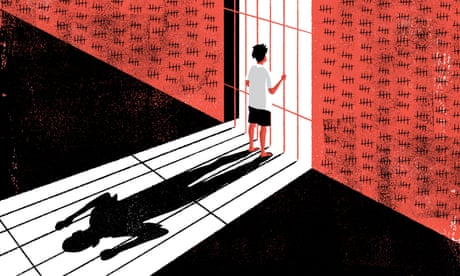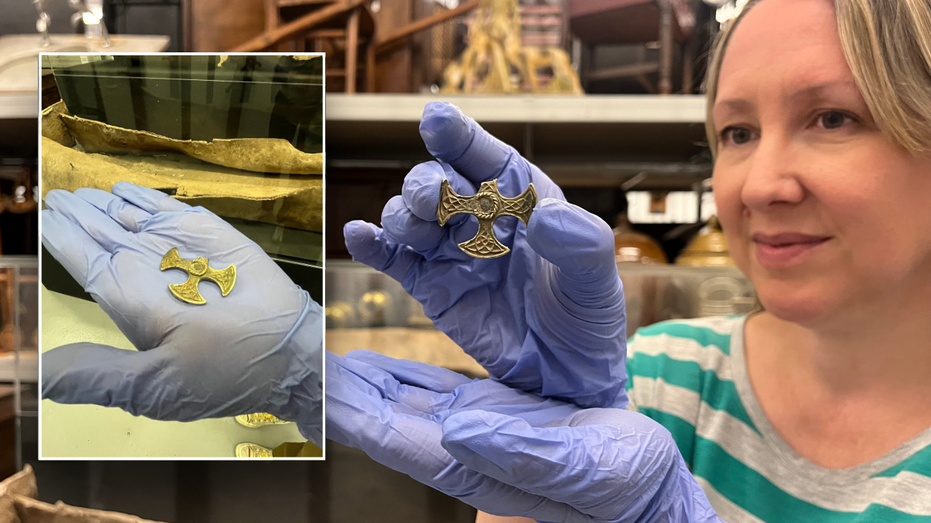- by foxnews
- 25 May 2025
‘I want to know why he died’: family seeks justice over Australia’s jailing of Indonesian child
‘I want to know why he died’: family seeks justice over Australia’s jailing of Indonesian child
- by theguardian
- 27 Apr 2022
- in news

Two dates are carved into the wood block marking Erwin Prayoga's makeshift grave.
For passersby on Rote Island, one of Indonesia's most impoverished regions, the numbers hold no great significance - another boy from a poor family, dead at 16.
There is nothing to hint at Erwin's final anguished years when, confused and far from home, he was arrested on an asylum seeker boat, charged as an adult people-smuggler and sent to a maximum security jail in Western Australia.
Nor of his illness while in detention, which persisted after urgent surgery, nor of his sudden deportation back home to a family so disadvantaged they had to cart him in a wheelbarrow to the local clinic when he quickly deteriorated.
For the Australian government though, the carvings on Erwin's headstone are damning.
The birthdate - 28 February 1995 - helps confirm a shocking miscarriage of justice spanning law enforcement and government, which caused Erwin to be wrongly incarcerated at the age of 14.
Using a trove of internal documents, the Guardian has established how police used a now discredited technique to alter the date of birth Erwin gave them, making him appear an adult and paving the way for his prosecution and imprisonment.
Erwin's brother, Baco Ali, his lawyers Ken Cush & Associates and a team of Indonesian human rights investigators are now demanding answers on the 14-year-old's medical treatment and the decision to send him home to Rote Island just months before he died.
"I know that death is inevitable," Baco says from his home on Rote Island.
"But I want to know what happened to him. I know he had surgery. I want to ask whether they really treated him well before they send him back home.
"I want to know why he died."
Three days after Christmas 2009, an Australian surveillance plane was conducting regular patrols across the Indian Ocean.
About 35km north of Ashmore Reef, the observers saw a small timber vessel adrift with 10 asylum seekers fleeing Burma on board, and alerted the Australian Navy to intercept.
The authorities identified Erwin as crew and detained him.
Erwin made it clear he was born in February 1995, making him 14 at the time of his arrest. In separate interviews the asylum seekers said they thought he was no more than 15.
The age Erwin gave to police matches not only the date his family carved into his headstone, but also the date on his birth certificate, obtained by the Guardian.
Under federal police policy on juvenile people smugglers, he should have been sent home.
But police instead relied on a technique to estimate his age which the WA supreme court found, in a separate case in 2017, to have been "completely discredited". They used an X-ray of Erwin's wrist to compare his bone maturity to a pool of largely middle-class Americans.
"In my opinion the subject of the X-ray had reached skeletal maturity and was therefore probably 19 years or older at 20 January 2010 when the X-ray was taken," the radiologist's report found.
Police and senior government figures had reason to be wary of the wrist X-ray technique before they used it on Erwin. The federal police had been involved in a case years earlier where they were told it was "not an exact science", was open to error and that the key reference tool on which it depended should be used with "judicious scepticism".
An internal immigration department briefing from June 2010, four months before Erwin was jailed, directly warned the government about the reliability of using wrist X-rays, pointing to UK guidelines that said it "cannot" be used to determine a person's age and was "an inexact science" with a "margin of error [that] can sometimes be as much as five years either side".
Erwin was prosecuted regardless and remanded in Perth's Hakea prison - a maximum security facility housing some of the state's worst criminals - before being sent five hours away to Albany prison in southern WA.
On a sworn prosecution notice seen by the Guardian, police had listed Erwin's date of birth as 26 February 1991. The year of birth Erwin gave them had been changed from 1995 to 1991, making it consistent with the X-ray report. The day was changed from from 28 Feburary to 26 February.
The changes made Erwin 19 years old.
Erwin had already been seriously ill while in immigration detention in the Northern Territory. In January 2010 he was rushed to Royal Darwin hospital complaining of abdominal pain.
Erwin went into surgery the next day to remove his appendix, medical records show, but two days later was still complaining of feeling "very sore all over from constantly dry retching/nausea".
Internal prison documents show he was doubled over in pain when he arrived at Albany prison 11 months later.
"Unable to void [urine] as was told he could not go to the toilet when he requested," the documents say. "This has happened before and required catheterisation to relieve. Last went to toilet early morning and has drunk approximately 300ml in transit. On examination, tense abdomen on palpation."
The next day, the prison recorded that Erwin was "well with no issues".
After Erwin had spent almost a year on remand in adult jails, his lawyers wrote to commonwealth prosecutors saying their client was still telling them he was a child.
"He instructed me that he maintains his position that his date of birth is 26 February 1995 which means he would have been 14 years of age when he was apprehended," his lawyer said.
"I note the court records state that he was born in December 1991 which must have resulted from some falsification of his records prior to entry."
More than three months after that letter, prosecutors withdrew the charges against Erwin.
He was released, declared fit to travel and deported to Indonesia not long before Christmas 2011.
Erwin was healthy for the first few weeks after he returned home in December 2011, Baco says.
The brothers hadn't spent much time together as kids, at times living on different islands. For Baco, Erwin had always seemed kind and loving, having left school to help the family survive.
"I remember when he arrived, we sat in our house with several relatives, and Erwin kept looking at me," Baco says. "He then asked someone next to him 'who is that?', and that person said: 'That's your little brother, don't you remember?'
"That's how long we've been apart. I also couldn't recognise him at first."
Erwin didn't say much about what had happened to him in Australia, save to tell Baco a story about their engines failing on the way, leaving the boat stranded.
Among the meagre possessions Erwin brought home were photographs of him in a prison uniform.
Soon Erwin began to complain about a pain in his abdomen. His family took him in a wheelbarrow to a local health centre and hospital on Rote Island.
The pain did not go away. As Erwin deteriorated, his family took him to a bigger hospital in Kupang, the capital of East Nusa Tenggara.
"I do not remember what the doctor said but I remember they put a catheter through him and I could see greenish looking liquid coming out from his stomach into the catheter bag," Baco says.
Erwin was screaming in pain.
"He clenched his fist like he wanted to fight with someone, maybe he wanted to fight that pain.
"He told me one time 'I could endure pain, but this pain is too much for me'."
One morning, around 5am, the screaming finally stopped.
Erwin and Baco's parents were already dead, so it was left to Baco and some other relatives to clean and prepare Erwin's body.
An hour later Baco was on a ferry, his brother's body next to him, travelling back to Rote Island.
Erwin was buried next to his mother's grave on the island. The family of five now has only two members left, Baco and his younger sister.
Baco is still searching for answers about his brother's death.
Some may come from the case of six other children wrongfully jailed as adults, who have just won a remarkable victory to overturn their convictions.
That case has revealed the true extent of Australia's failings.
In a judgment published on Tuesday, the WA court of appeal said a "substantial miscarriage of justice" had occurred.
The court found that, without the wrist X-ray evidence, all six boys would "not have been charged as an adult". It said commonwealth prosecutors had now conceded their earlier reliance on the wrist X-rays cast "serious doubt" on the integrity of their case.
"The Crown has conceded that a miscarriage of justice was occasioned by each of the convictions; the judgments of conviction should be set aside; and judgments of acquittal should be entered," the court said.
"The Crown accepts that there was no reliable evidence when each appellant was convicted and sentenced that he was of or over the age of 18 years."
It comes far too late for Erwin.
- by foxnews
- descember 09, 2016
Rare 1,200-year-old Christian cross found in field by metal detectorist
The City of Leeds in the U.K. recently revealed a Saxon treasure: a gilded pendant from Northumbria's Christian past, offering a glimpse into early medieval life.
read more


